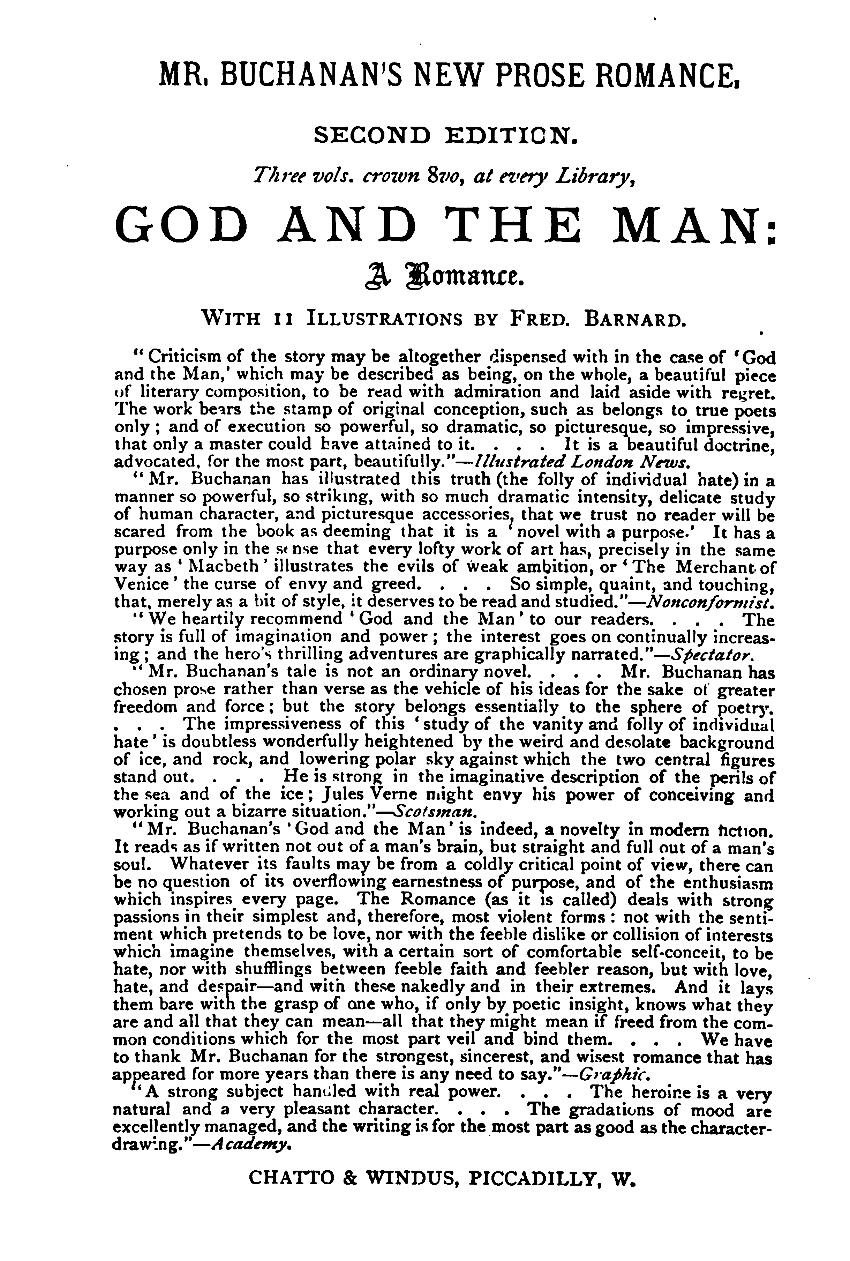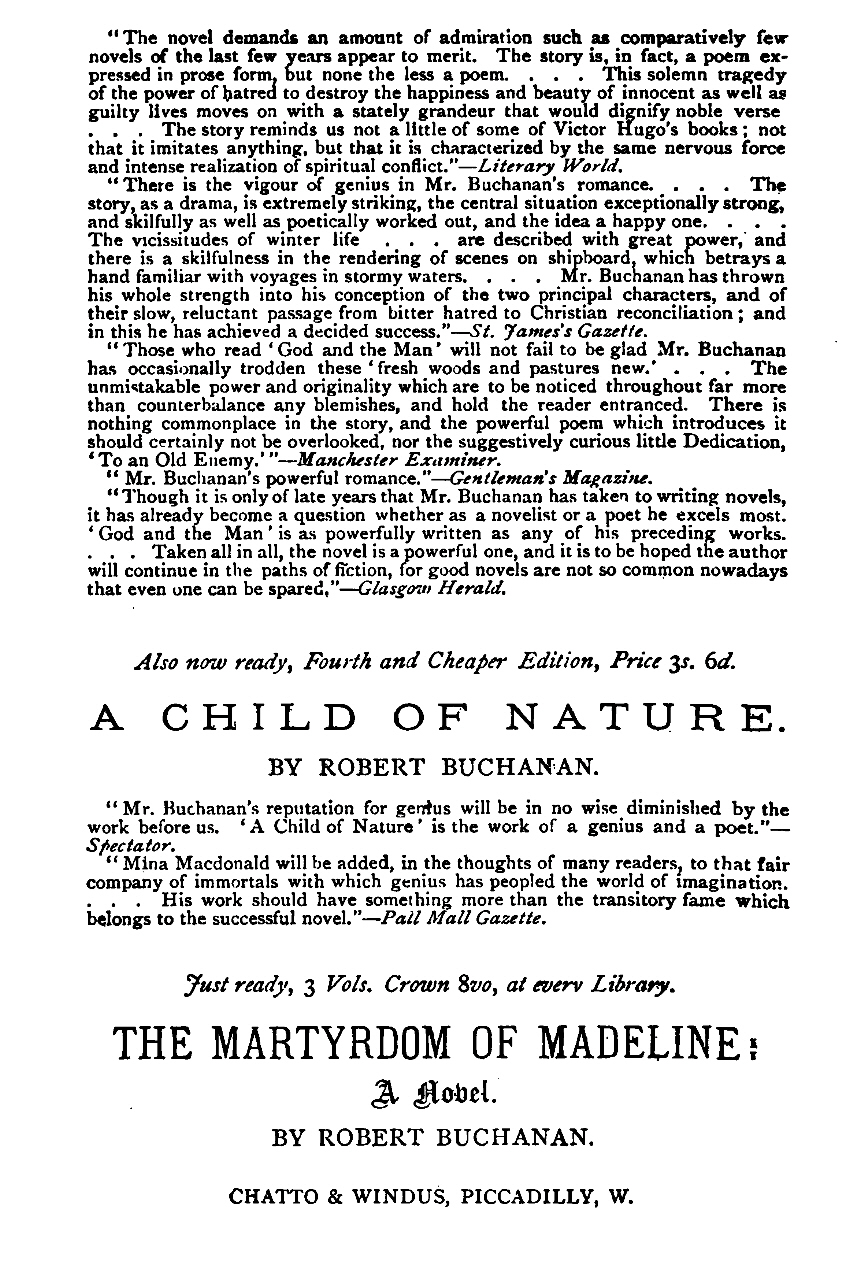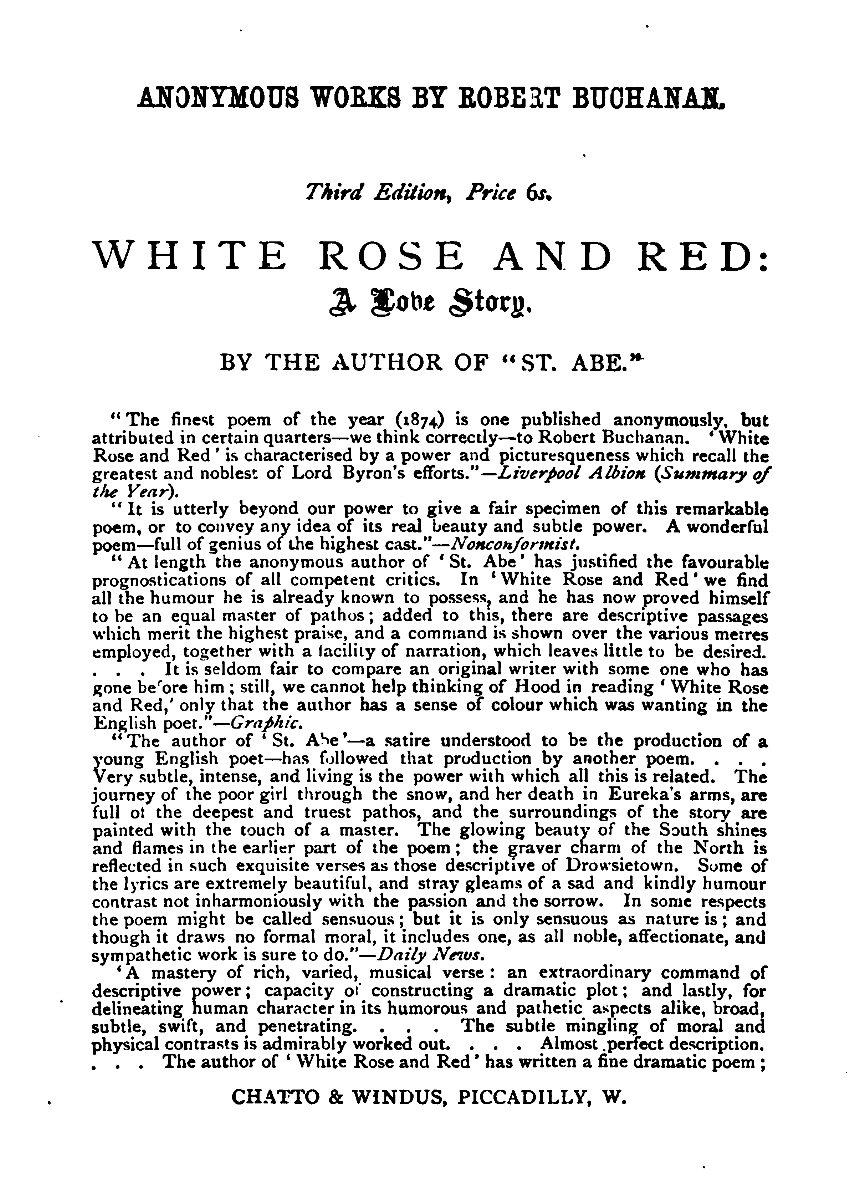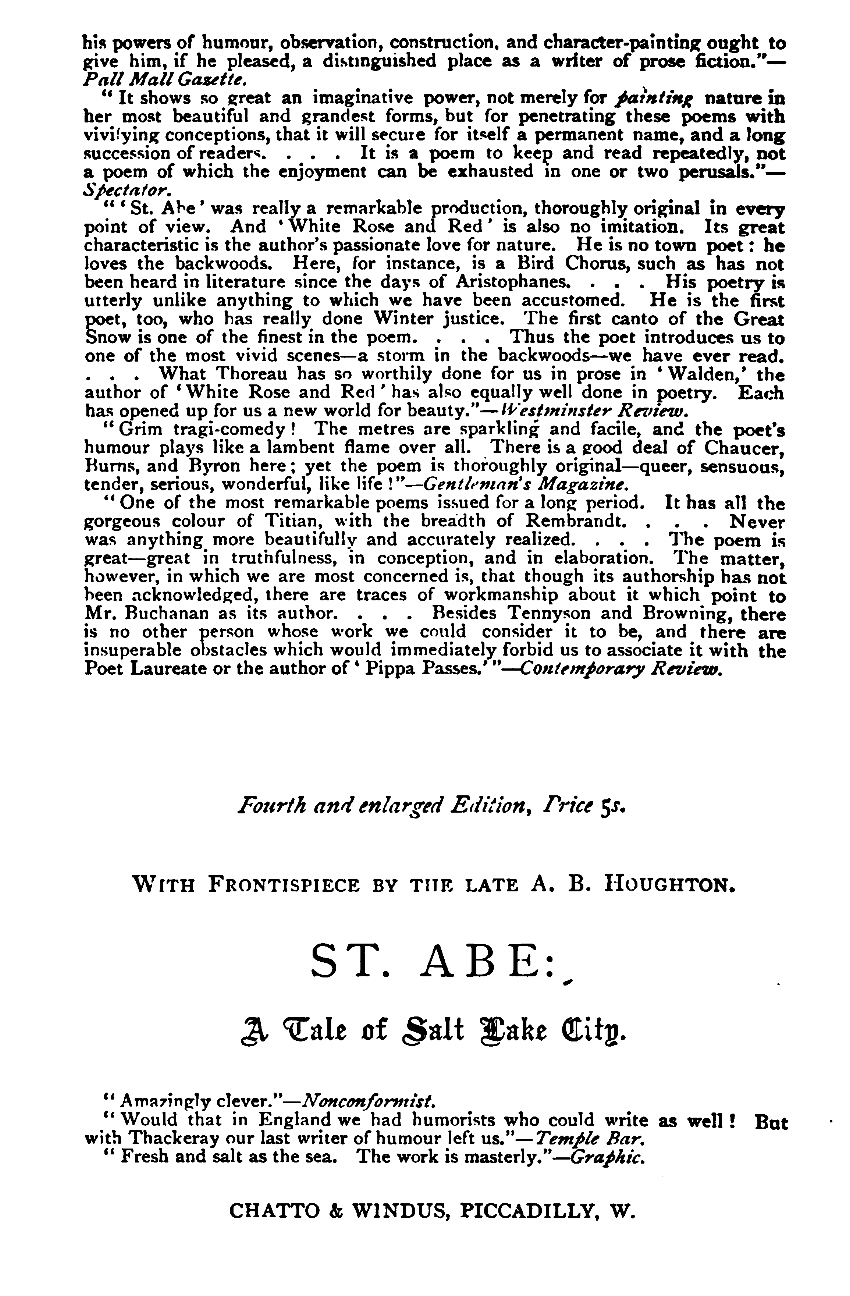ROBERT WILLIAMS BUCHANAN (1841 - 1901)
|
ROBERT WILLIAMS BUCHANAN (1841 - 1901) |
|
|
|
|
|
|
|
|
{Ballads of Life, Love, and Humour 1882}
215 SWEET, sing a song of the May to me,
216
1 THE sea is moaning, the little one cries,
2 The drift is dark as the dawn appears:
3 He fisheth there that the babe may eat— 217 4 Sees he the gleam of the foam-flake there,
5 His heart is heavy, his lips are set,
6 The Dawn gleams cold as he homeward flies
[Note:
218 (A GENRE PICTURE)
HOW slowly creeps the hand of Time All moves, but nothing here is swift; All stirs, but nothing here is loud: 219 And close at hand, to see him come, Slow as the hand on the clock’s face, And from the portal, green and dark, 220
[Note:
221 WHEREFORE so cold, O Day, Wherefore, O Fisherman, Wherefore so still, O Sea? 222
[Note:
223
I O CHURCHYARD in the shady gloom, Thou holdest in thy sunless land Now to the murmur that mine ears The cries keep on, the minutes pass,
II O Churchyard in the shady gloom, Among the gravestones worn and old, While, burthened by the life we bear, 225 For here, where stillness, death, and dream,
[Note:
226
SAD is the plight of Giant Despair, With the noise in his ears and the gleam in his eyes In and out the Leeches of Souls With parchment cheek and lack-lustre eye 227 O Priests who stand and whisper there, Fat and oily and sweet, cries one:— “Nothing delicious the Lord denies, With parchment cheek and lack-lustre eye “Comfort!” another crieth loud, 228 “All shall be stainless and sweet and fair; Then one said this and one said that, And all the storm of the wind and rain, Forth, at last, stept a shape so grey, “Over thy grave the grass shall grow— 229 “Many a year shall blossom and fade, The Giant smiled. Still loud and strong
Who on the Giant’s tomb Maiden she is; with eyes 230 And in her wild black hair Under God’s starless cope, Afar away they shine! Such sounds as fill’d with care 231 She sees the foam-flash gleam, There let her sit alone, Ah! which were sweetest, best?
[Note:
232 HERE, on the sultry mountain’s face, All is as still as sleep; on high How still it is! nought moves or stirs. All motionless on yonder stone 233 No living thing that flies or creeps But when the sun is in the west, Or from the stones the foumart slim How many a strange and gentle thing 234 Here stain’d with blood and foamy-lipt, How sweet it lies! how dark and cool! All thro’ the dim and dewy night A never-empty hand, a dim 235
[Note:
236 O WHO sits and sings the sad song of the Shealing, Dark strewn on the grass are the stones of the Shealing, O who would not hark to the song of the Shealing! 237 O green was the pasture, and sweet was the Shealing, O spirit of whiteness, O Ghost of the Shealing!
* The rude cluster of huts in the midst of the distant pasturage whither the cattle were driven in summer, and where they grazed for many weeks, attended by the women and maidens of the farm.
[Note:
238 I BUILT a hut beside the Mere, The world of men was far away; “It is an evil world,” I said; And when I came unto the Mere, 239 I said, “It is a godless place— For mark, the hills were stone and sand, And through a sullen mist I came, But when I rose and glimmer’d forth, 240 I said, “Go by, O golden light! [9:1] And when the lamps of heaven were lit, And ever when the daylight grew I cried, “God cannot find me now; 241 ’Twas Spring that day; the air was chill; Ah me! it was the same sweet sound Upon a rock sat that sweet bird, From rock to rock I saw him fly, 242 Some secret hand I could not see And lo! at every step I took I hated every sight and sound; Daily I stole unto the Mere, 243 [20:1] “We will not smile nor utter praise; Scarce had I spoken in such wise, There, clustering in that under-gloom, [23:1] As countless as the lights above, 244 Then suddenly within my breast And soon the gloomy Mere was sown I could not bear to dwell apart As one that riseth in his tomb, 245
[Note:
246 STILL were the azure fields, thick strewn And on that face her lustre fell, I knew thee by a simpler name, At last thy voice thrilled soft and low— 247 “Oh, thinkest thou this life we live, The moonlight on her cheek of snow, And as she spake, it seemed I saw The haunter of green moonlit tombs, 248 “I can remember!—all the day “Before this mortal sphere I trod, “I can remember!”—In a trance, And all the luminous eyes above 249 A sense of that forgotten life Go by, bright days of golden blooms! O child of heaven, the life we live,
[Note:
250 VANITY FAIR
I HERE’S a babble Trip it merrily, All together,
II Clari, my sweetest, . . . Breathless, flushing, What is this looming The moon shines cold
[Note: |
 |
 |
 |
 |
|
Back to Ballads of Life, Love, and Humour - Contents or Poetry
|
|
|
|
|
|
|